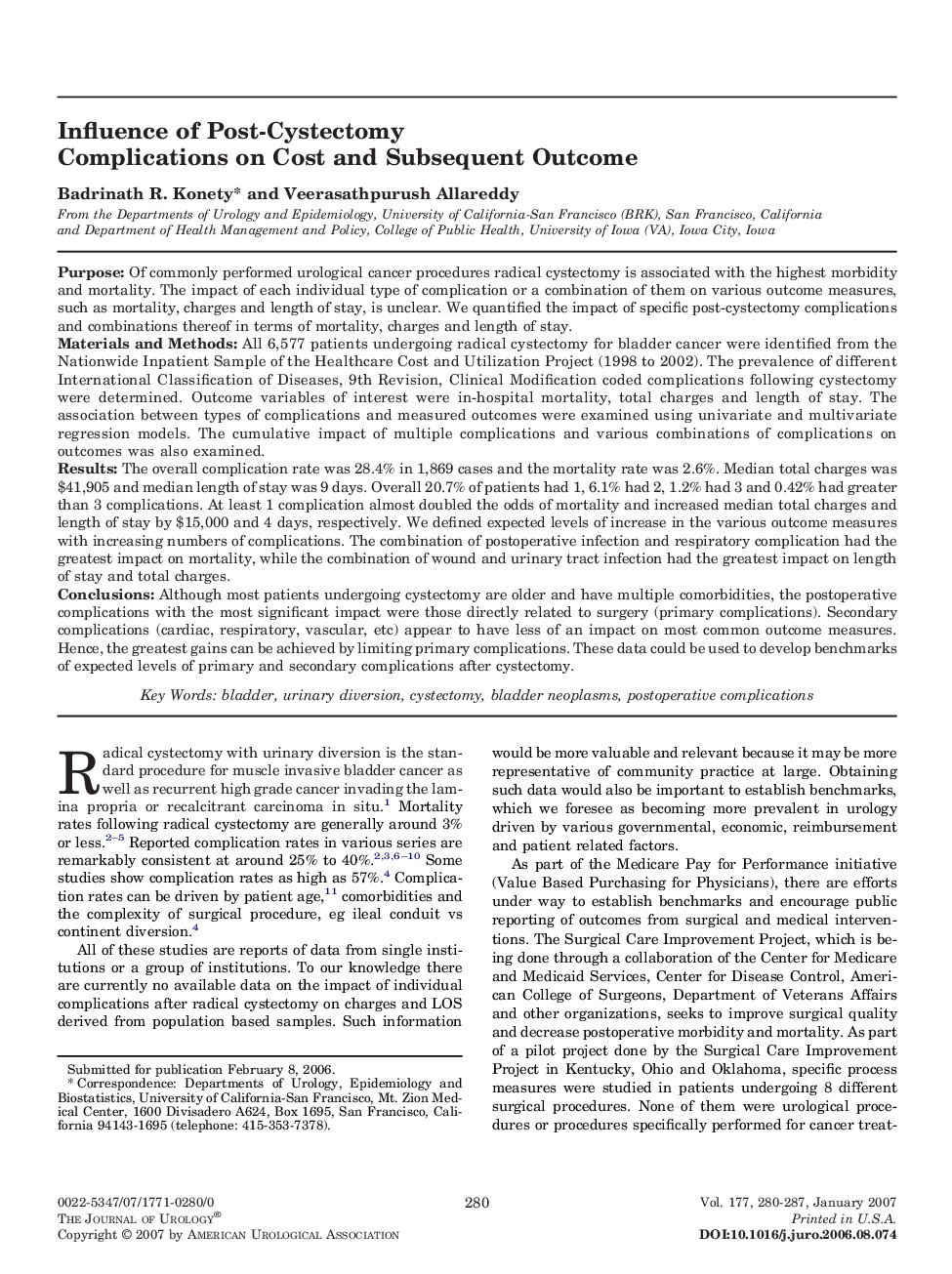| Article ID | Journal | Published Year | Pages | File Type |
|---|---|---|---|---|
| 3879692 | The Journal of Urology | 2007 | 8 Pages |
PurposeOf commonly performed urological cancer procedures radical cystectomy is associated with the highest morbidity and mortality. The impact of each individual type of complication or a combination of them on various outcome measures, such as mortality, charges and length of stay, is unclear. We quantified the impact of specific post-cystectomy complications and combinations thereof in terms of mortality, charges and length of stay.Materials and MethodsAll 6,577 patients undergoing radical cystectomy for bladder cancer were identified from the Nationwide Inpatient Sample of the Healthcare Cost and Utilization Project (1998 to 2002). The prevalence of different International Classification of Diseases, 9th Revision, Clinical Modification coded complications following cystectomy were determined. Outcome variables of interest were in-hospital mortality, total charges and length of stay. The association between types of complications and measured outcomes were examined using univariate and multivariate regression models. The cumulative impact of multiple complications and various combinations of complications on outcomes was also examined.ResultsThe overall complication rate was 28.4% in 1,869 cases and the mortality rate was 2.6%. Median total charges was $41,905 and median length of stay was 9 days. Overall 20.7% of patients had 1, 6.1% had 2, 1.2% had 3 and 0.42% had greater than 3 complications. At least 1 complication almost doubled the odds of mortality and increased median total charges and length of stay by $15,000 and 4 days, respectively. We defined expected levels of increase in the various outcome measures with increasing numbers of complications. The combination of postoperative infection and respiratory complication had the greatest impact on mortality, while the combination of wound and urinary tract infection had the greatest impact on length of stay and total charges.ConclusionsAlthough most patients undergoing cystectomy are older and have multiple comorbidities, the postoperative complications with the most significant impact were those directly related to surgery (primary complications). Secondary complications (cardiac, respiratory, vascular, etc) appear to have less of an impact on most common outcome measures. Hence, the greatest gains can be achieved by limiting primary complications. These data could be used to develop benchmarks of expected levels of primary and secondary complications after cystectomy.
